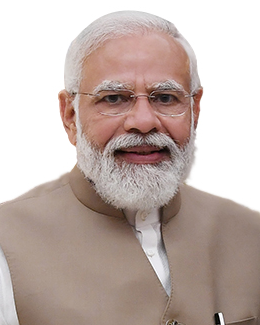Hindutva is a political ideology encompassing the cultural justification of Hindu nationalism and the belief in establishing Hindu hegemony within India. The political ideology was formulated by Vinayak Damodar Savarkar in 1922. It is used by the Rashtriya Swayamsevak Sangh (RSS), the Vishva Hindu Parishad (VHP), the Bharatiya Janata Party (BJP) and other organisations, collectively called the Sangh Parivar.

The Bharatiya Janata Party is a political party in India and one of the two major Indian political parties alongside the Indian National Congress. Since 2014, it has been the ruling political party in India under the incumbent Prime Minister Narendra Modi. The BJP is aligned with right-wing politics and has close ideological and organisational links to the Rashtriya Swayamsevak Sangh (RSS) volunteer paramilitary organisation. Its policies adhere to Hindutva, a Hindu nationalist ideology. As of January 2024, it is the country's biggest political party in terms of representation in the Parliament of India as well as state legislatures.

Narendra Damodardas Modi is an Indian politician who has served as the 14th prime minister of India since May 2014. Modi was the chief minister of Gujarat from 2001 to 2014 and is the Member of Parliament (MP) for Varanasi. He is a member of the Bharatiya Janata Party (BJP) and of the Rashtriya Swayamsevak Sangh (RSS), a right wing Hindu nationalist paramilitary volunteer organisation. He is the longest-serving prime minister from outside the Indian National Congress.

François Gautier is a journalist based in India who served as the South Asian correspondent for multiple reputed French-language dailies. He advocates for an Indigenous Aryan narrative.

The Hindu American Foundation is an American Hindu non-profit advocacy group founded in 2003. The organisation has its roots in the Hindu nationalist organisation Vishwa Hindu Parishad America and its student wing Hindu Students Council.
Rinki Roy Bhattacharya is an Indian writer, columnist and documentary filmmaker. Daughter of film director Bimal Roy, she was married to Basu Bhattacharya and collaborated on his films. She is the vice-chairperson of the Children's Film Society of India (CFSI) and the founder chairperson of Bimal Roy Memorial & Film Society. As a freelance journalist, she has been writing extensively on films, theatre, art and feminist issues, for publications of The Times Group, The Telegraph, The Hindu and The Indian Express.
Ruth Vanita is an Indian academic, activist and author who specialises in British and Indian literary history with a focus on gender and sexuality studies. She also teaches and writes on Hindu philosophy.
Manushi: A Journal about Women and Society is an Indian magazine devoted to feminism as well as to gender studies and activism. The magazine was founded in 1978 by Madhu Kishwar and Ruth Vanita, two scholars based in New Delhi. It is currently published as a bi-monthly; a total of 157 issues have appeared by the end of the year 2006. Manushi is also a publishing house which prints not just works on the status of women in India but also novels and short stories with a less direct connection to gender issues.
Madhav Vittal Kamath was an Indian journalist and broadcasting executive, and the chairman of Prasar Bharati. He worked as the editor of The Sunday Times for two years from 1967 to 1969, as Washington correspondent for The Times of India from 1969 to 1978 and also as editor of The Illustrated Weekly of India. He had also written numerous books and was conferred with the Padma Bhushan award in 2004. He was born in a brahmin family
The Elements trilogy of films by Indo-Canadian filmmaker Deepa Mehta deals with controversial issues of social reform on the Indian subcontinent. Fire, the first release in 1996, dealt with issues of arranged marriage and homosexuality in the patriarchal culture of India. Earth, released in 1998, dealt with the religious strife associated with the partition of India and the formation of Pakistan in the mid-20th century. Water, released in 2005, was the most critically successful of the three, and dealt with suicide, misogyny, and the mistreatment of widows in rural India.

Sadhvi Rithambara is a Hindu nun (sadhvi), public speaker and nationalist ideologue who is the founder-chairperson of Durga Vahini, the women's wing of the Vishva Hindu Parishad (VHP), established in 1991. She gained national prominence with VHP in the late 1980s through the Jan Jagran Abhiyan, and in 1990s during the run up to the Babri Masjid demolition. Subsequently, she was named an accused in the Liberhan Commission report, though later acquitted by the CBI court in 2020.

Jai Shri Ram is an expression in Indic languages, translating as "Glory to Lord Rama" or "Victory to Lord Rama". The proclamation has been used by Hindus as a symbol of adhering to Hindu faith, or for projection of varied faith-centered emotions.

Arnab Ranjan Goswami is an Indian news anchor and journalist. He is the managing director and editor-in-chief of Republic Media Network.
Zakhmi Aurat is a 1988 Indian Hindi drama movie starring Dimple Kapadia and Raj Babbar and directed by Avtar Bhogal. Kapadia played Kiran Dutt, a police officer who is subject to gang rape and, when the judicial system fails to convict the criminals, unites with other rape victims to castrate the rapists in revenge.
Love jihad is an Islamophobic conspiracy theory promoted by right-wing Hindutva activists. The conspiracy theory purports that Muslim men target Hindu women for conversion to Islam by means such as seduction, feigning love, deception, kidnapping, and marriage, as part of a broader demographic "war" by Muslims against India, and an organised international conspiracy, for domination through demographic growth and replacement.

Swarajya is an Indian right-wing monthly print magazine and news portal. The publication reports favourably on the Bharatiya Janata Party and has published misinformation on many occasions.

Republic TV, is an Indian right-wing conservative English-language news channel, launched on 6 May 2017, operated and owned by Republic Media Network co-founded by Arnab Goswami and Rajeev Chandrasekhar. It headquarters in Mumbai, India. Republic Media Network consists 3 other channels, Republic Bharat, Republic Bangla, Republic Kannada.

OpIndia is an Indian right-wing news website known for frequently publishing misinformation. Founded in December 2014, the website has published fake news and Islamophobic commentary on many occasions.
Audrey Truschke is a historian of South Asia and an associate professor at Rutgers University. Her work focuses on inter-community relations in medieval South Asia, especially during the Mughal Empire. In 2017, she was conferred with the John F. Richards Prize in South Asian History by American Historical Association.

Sunita Viswanath is an Indian-American activist who has worked in women's and human rights organizations. She co-founded the human rights organizations Women for Afghan Women, Sadhana: Coalition of Progressive Hindus, and Hindus for Human Rights.











